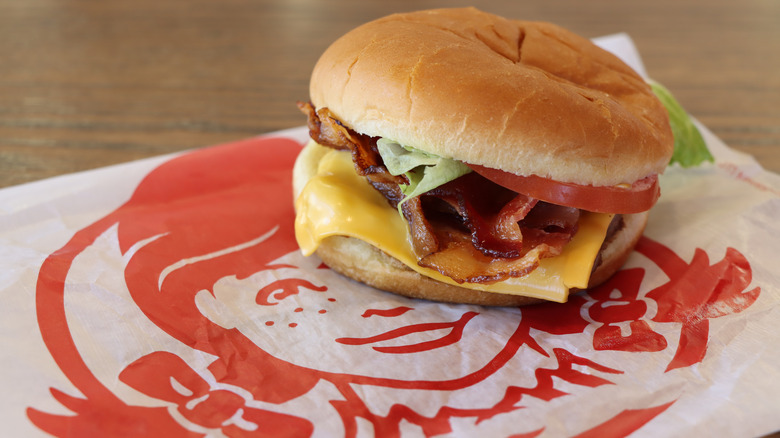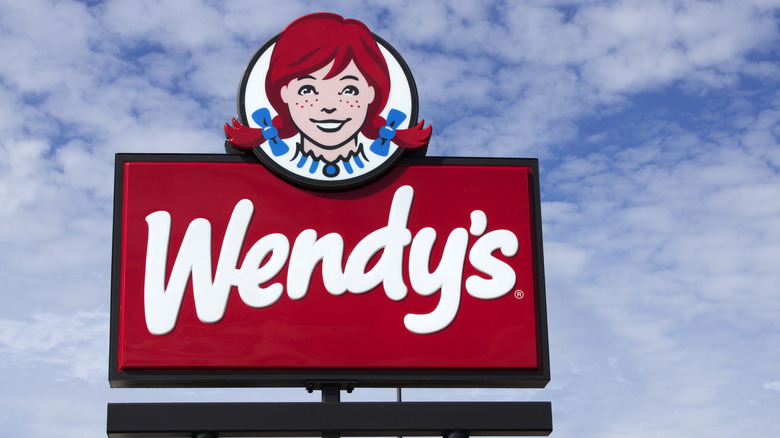The E. Coli Outbreak Linked To Wendy's Has Officially Ended
Foodborne illnesses are nothing new, with the U.S. Centers for Disease Control and Prevention (CDC) estimating 48 million cases annually in the United States, some bringing dire consequences. But when they come from your favorite restaurant or fast food chain, the problem hits home — quite literally. That's why it's a relief to hear when an outbreak, such as the one tied to E. coli at Wendy's restaurants in 2022, has been identified, mitigated, contained, and ultimately eradicated.
Of the 250 foodborne pathogens leading to potential food poisoning, E. coli (Escherichia coli) is one with the potential to cause severe illness. It falls under the bacteria group of pathogens, which also includes listeria and salmonella, rather than foodborne viruses such norovirus or hepatitis A, explains the U.S. Food and Drug Administration (FDA). With so many prospective food invaders, life may sometimes seem like a game of dodgeball. Fortunately, contamination can be identified and stopped in its tracks. That seems to now be the case with the E. coli outbreak linked to Wendy's.
Case closed
Major players in food safety and public health participated in the 2022 investigation surrounding E. coli contamination at Wendy's restaurants in six states. Identified illnesses occurred between July 26, 2022, and August 17, 2022, according to the CDC. At least 109 people showed infection from the E. coli O157:H7 strain, though numbers are most certainly higher due to milder cases not prompting medical attention. Approximately 83% with detailed food history revealed eating at the fast-food chain within seven days prior to E. coli infection. After a thorough investigation, the Wendy's outbreak is considered officially over, according to a statement by the CDC on October 4, 2022.
Despite input and participation from the CDC, FDA, U.S. Department of Agriculture (USDA), and numerous individual state departments and officials, the specific cause of the Wendy's E. coli debacle remains a mystery. That's because multiple ingredients comprise the typical Wendy's meals consumed by infected individuals. Romaine lettuce became a viable suspect, with a high percentage of victims consuming sandwiches topped by it. But lab work and tracing data failed to attribute the outbreak to any one ingredient.
No known deaths resulted from this outbreak, though serious illness did occur. Almost half the infected people required hospitalization, according to Food Safety News, and 13 contracted a serious kidney condition known as hemolytic uremic syndrome. The Mayo Clinic notes there is no cure for E. coli infections, but treatments for related severe illnesses can include IV fluids, blood transfusions, and, if necessary, kidney dialysis.

